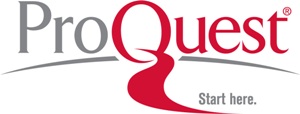
ProQuest on January 18 signed a definitive agreement to acquire Ebook Library (EBL), the companies announced today. They plan to merge EBLs platform with ebrary, which ProQuest acquired in January 2011. The transaction is expected to be complete by April, according to a letter sent by Kari Paulson, president of EBL.
In a statement to the press, ProQuest CEO Kurt Sanford said that the company viewed EBL’s business models and acquisition tools as complementary to ebrary’s core platform technology, subscription service, and content selection. Ultimately, the combined platform will then be connected to all of ProQuest’s products and services, such as its Summon discovery solution.
Paulson will join ProQuest to lead the merger and ultimately manage the combined ebook business unit, reporting to Kevin Sayar, cofounder of ebrary and now senior vice president of ProQuest Workflow Solutions.
“If you look back two years, ProQuest, it would be fair to say, did not have a real position in the ebook market for academic libraries,” noted Sayar. With this acquisition “I think what you’re going to see is ProQuest being able to bring a lot more value from a customer and user perspective, in terms of alignment between traditional ProQuest products—dissertations and journals and newspapers—[and] books.”
Founded in Australia in 2004, EBL has helped pioneer a range of new lending models, such as short-term loans, chapter-level purchases for reserve circulation or coursepacks, and demand-driven acquisition.
“They introduced the Patron Driven Acquisition (PDA) model first, and developed some great acquisition tools around that. ebrary has been playing catch up on those,” Sayar said. “They’ve been thinking about these things a lot longer, and talking to customers about them a lot longer, and it shows in terms of their creativeness.”
Meanwhile, the integration efforts of ebrary and ProQuest will benefit EBL, Sayar said. “More ProQuest users are going to have an integrated experience across multiple product lines.”
Although both companies have global customer bases, EBL’s strength in Australia, Europe, the UK, and New Zealand also complements ebrary’s strength in North America, Sayar said.
With the acquisition just announced, Sayar said that current customers of both systems should expect few changes in the near term, and that the company doesn’t currently have plans to discontinue products or services from either platform.
“This is a growth play, obviously,” he said. “We’re thrilled to be able to combine the advantages of both businesses into a single solution, so we really don’t have any intention to drop anything.”
It will also take time for the merged entity to transition publishers to new contracts. “They are two distinct companies right now with different agreements with publishers, so it will take time before you see an integrated catalog where you have 100 percent of the content—the master list of titles from both companies—available under as many of the business models that both companies provide. That will be what we will be working on over the next year.”


